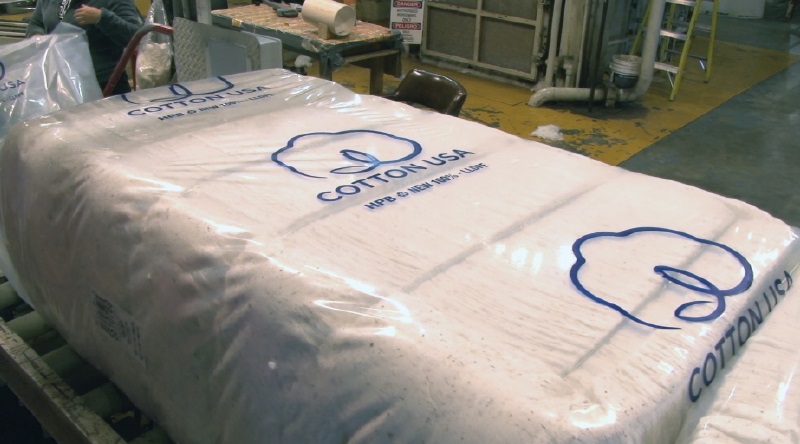Harmonization of Rules in International Cotton Trade
Last year, the available data from CICCA (Committee for International Co-operation between Cotton Associations) member organizations indicated that 324 parties from 56 countries had defaulted on 343 awards, 243 being ICA awards. Given the collapse in the world economy, the latest data indicates the level of defaults has increased by 10% with 334 parties from 57 countries having defaulted on 357 awards, 298 being ICA awards totaling $87 million.
There are many reasons for the large number of defaults. The most obvious reason for a mill to default is a decline in price. Most of the defaulting mills are yarn spinners who have to sell into a predatory market lacking rules. If the price of cotton goes down, so does the price of yarn. If the mill sold the yarn at a high price, the usual result is the buyer will only pay the lower market price. In turn, the mill is likely to default on its contract with the cotton merchant. When the price goes up, merchants who have not covered themselves with physical cotton or futures are likely to default.
Bear in mind that this not a usual practice for established mills and merchants. True, we are suffering through the worst economic period in 25 years, but there is another important reason ― the rapid globalization of trade.
The accelerated growth in textile production in the developing countries has outpaced the necessary transition to the established principles of contract sanctity, adherence to trade rules, and the honoring of arbitration awards. In other words, adherence to the cotton industry’s good trade practices has not kept pace with economic development.
Consistency, Transparency
Many nations actively engaged in world trade have not fully developed consistent and transparent legal systems, ethical standards, risk management tools, convertible currencies, and viable commercial banking systems offering competitive interest rates. Theirs is a world of systemic inefficiencies created and maintained by inadequate governance restricting these economies from adapting and adhering to the world’s legal standards and reaping the benefits of viable economic growth.
Unless and until these systems are reformed, the commercial world will continue to act with caution by doing business at an added cost to the developing world. The added cost to trade as a precaution against defaults is reason alone for the harmonization of rules.
These challenging factors emphasize the necessity that the international cotton trade should be reading from the same rule book. We must familiarize the developing nations of the time proven, fair and equitable customs and usages of the viable trade in cotton that have been codified and are periodically updated in a uniform set of rules to deal with both common and uncommon situations that have occurred in our business transactions. In other words, we must harmonize our trade rules.
The word “harmonize” signifies being in accord, or bringing into agreement. an idea, melody, rules, regulation, game, sport or other concept in order for it to function for the benefit of all who make use of it, observe it, or who are either directly or indirectly tied to it.
There are countless examples: traffic rules for vehicles using the streets and highways, vessels navigating across oceans or on rivers, canals, or in harbors, rail cars carrying people and goods, planes taking off and landing in busy airports, those speaking different languages playing an international sport, such as football, and those engaging in contract practices for goods or services.
If we were all to abide by different rules there would be traffic jams on our streets and highways, rivers and harbors, rail depots, airports, mayhem in our athletic stadiums and irreconcilable differences in our contractual transactions. Simply put, national and international commerce would come to a standstill.
The cotton trade is no different ― it, too, must comport to this necessary concept of “harmony” to facilitate the trade in cotton. Lacking that, we will continually be subject to new and oftentimes arbitrary standards such as those imposed on cotton imports earlier this year by China.
Dynamics of the Cotton Trade
The international trade in cotton is a dynamic year-round, 24/7 process involving hundreds of international merchants and cooperatives purchasing the production of millions of farmers, cataloging the cotton into its quality categories, finding markets suitable for its use and shipping it across the world to thousands of textile mills ready to spin a product for a specific consumer need.
This is a truly unique process where the members of the cotton network, utilizing transparent market information, serve one-another by producing a commodity, adding value to it, offsetting price, contract performance, and other risks, protecting the commodity’s value, shipping it for manufacturing and then creating it into new products which stimulate additional production.
Such a system can function efficiently and affordably only with a universal set of rules, common contract provisions that reflect the customs and usage of the international trade, uniform letters of credit and bills of lading, and a fair, impartial and affordable system to resolve disputes when they do arise.
Simply put, the system cannot function with a hodgepodge of rules for each individual market. The benefits of harmonization are the efficiencies we would achieve throughout our production and marketing system that should result in producers, processors, and consumers receiving or paying a fair price for cotton or its end products.
We must emphasize to all nations how widely-used international trading rules and arbitration procedures facilitate efficiencies in trade, just as we should make known the consequences of failing to comply with these widely accepted precepts. That is why it is incumbent upon all of us engaged in the cotton business to fully cooperate in the necessary endeavor to standardize our trading practices by harmonizing existing regional or national rules with universally applied trade rules.








